Study Tips for Taking the Omnibus Mid-Term and Final
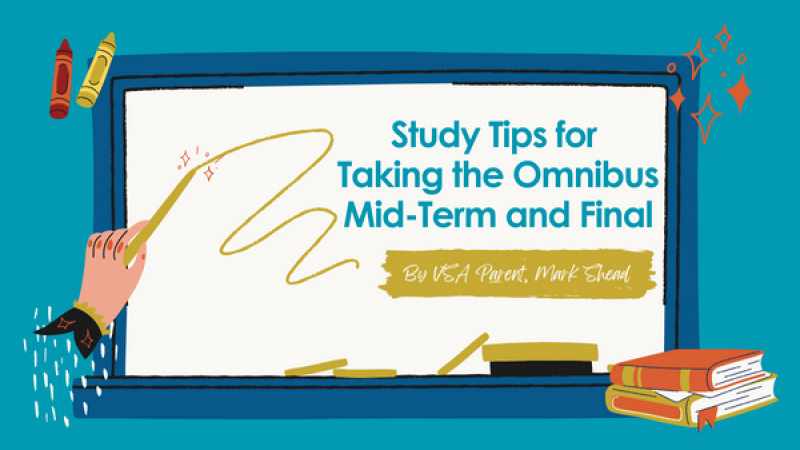
Our family is in our fourth year of using the Omnibus curriculum. Starting with self-paced and transitioning to live classes, we've tried many different approaches to the readings and different ways of studying for tests. This post covers some things that worked well to make the readings memorable, the study efficient, and set our kids up for exam success. Sometimes they had to be strategic and focus their time, so only some ideas get used with every book. Here are six points that have helped us get the most out of the Omnibus courses.
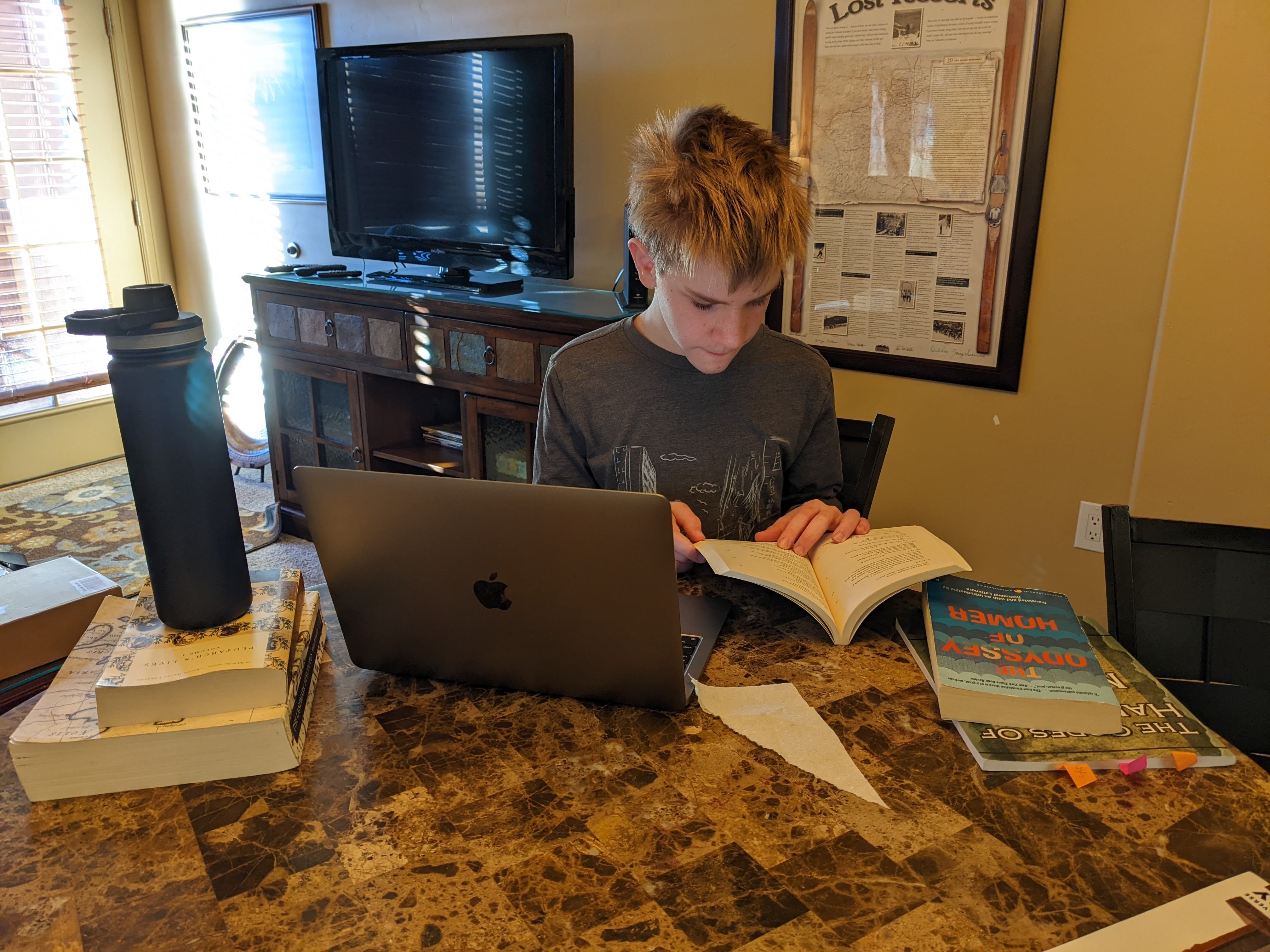
1. Learn With Your Kids
One of the best ways to help kids understand and retain the information they are learning in Omnibus is to read and discuss the assigned books and essays with them. You can read the books to each other, listen to audio versions, or stay up late after the kids go to bed to try to catch up with where they are in the book. As an adult with other responsibilities, it may be nearly impossible to keep up with the reading load for a single child, much less multiple kids. However, even if you only read a few of the books yourself, having family conversations about what they are learning is an incredibly effective way to help them retain the information, discuss how the topics and themes relate to the world, give them an opportunity to teach you what they are learning, and otherwise enjoy the few short years you will have them as a child.
When we first started Omnibus, we were using Self-Paced courses. We watched most of the lectures together as a family during meals and in the evenings and read many of the books together in the car, before bed, or wherever we could make time.
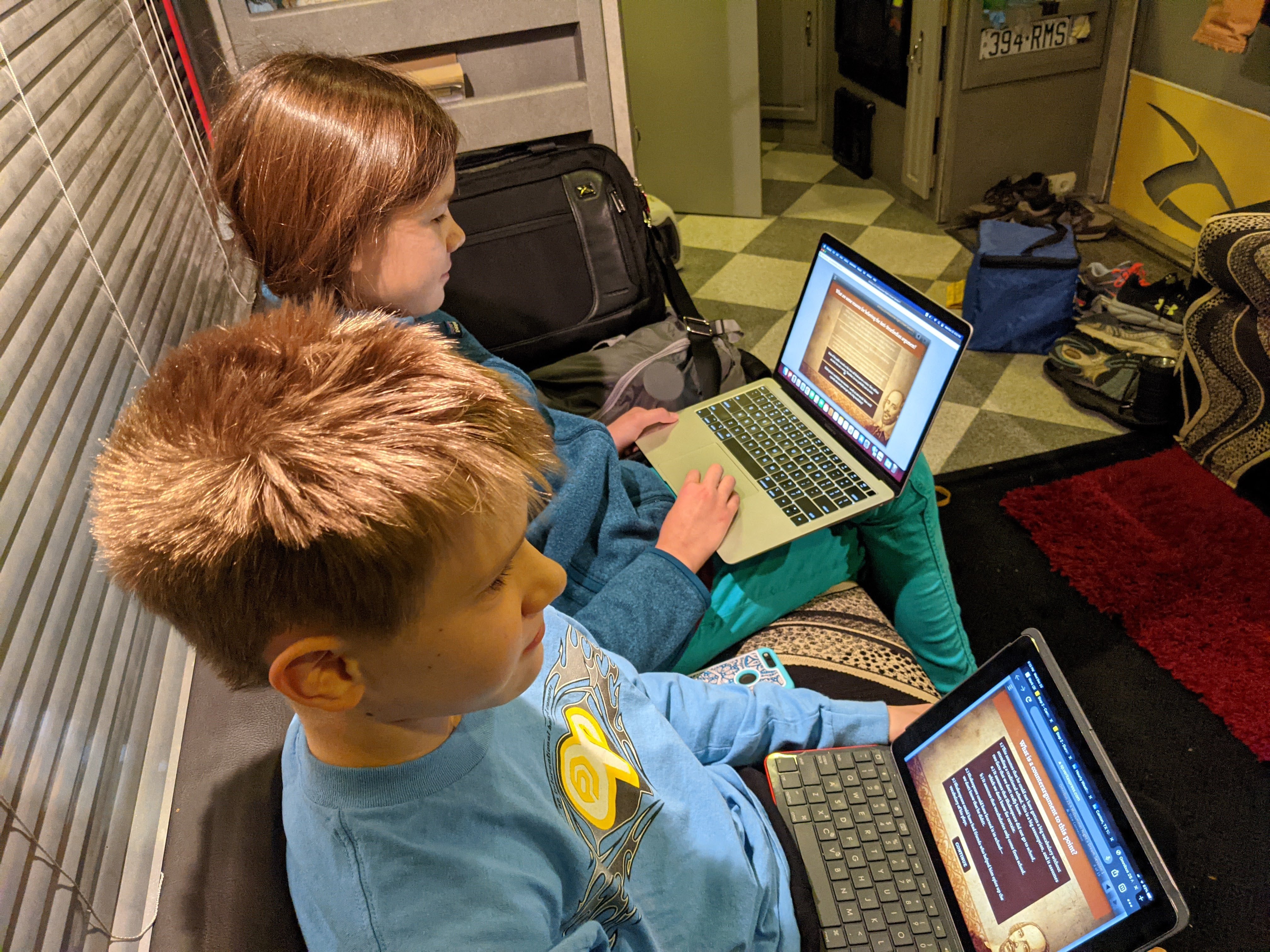
Sometimes, we've looked ahead and found books to read with our extended family. For example, we read through 20,000 Leagues Under The Sea with cousins and friends on video conference over a few months. Then we got together for a party to watch the movie, do a Captain Nemo-themed escape room, and harpoon a few shark-pinatas.
2. Self-paced Quizzes
While most ideas here will work for Self-Paced, online, or you-teach Omnibus, Self-Paced students have a secret study tool in the online quizzes. The first time you take a quiz determines your grade, but you can take it as many times as you want to practice the material later.
When our family used Self-Paced courses, we'd start studying several weeks before the mid-term or final. To prepare, we'd have our kids go back through all the quizzes to ensure they could get 100% on them. This may sound daunting. There are a large number of quizzes, but since there are only ten multiple-choice questions on each quiz, it only takes a little bit of time to get through a large number of them. Your children will probably find most of the questions easy, but the odd question they get wrong can help clarify a fact they didn't quite remember right and put them in the best position possible to succeed on the test.
3. Codenames
Codenames (https://codenames.game/) is a simple party game where two "spymasters" give their team single-word clues to get them to pick the right word on the gameboard. The online version of the game lets you load your own words, so it can be a fun way to review a book. For example, when my son finished The History of the Kings of Britain, we created a list of words from the book. So we had entries like Vortigern, Gogmagog, Welsh, Caliburn, Giant's Ring, St. Alban, etc.
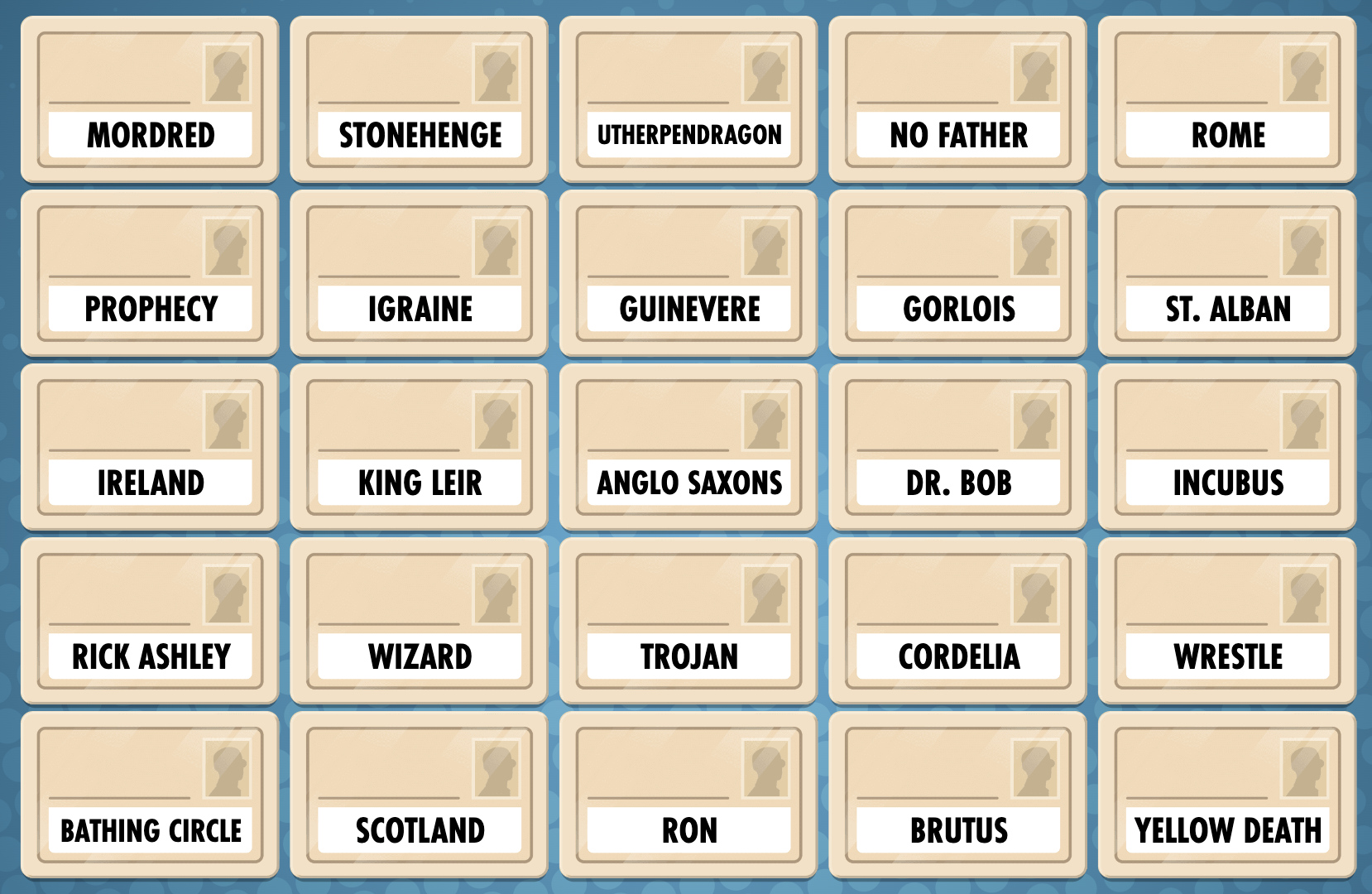
He invited some classmates, and I posted a link on the Veritas Press Homeschoolers page for Codenames study session on a Friday morning. We ended up with half a dozen students and played a few rounds!
In addition to just playing the game, asking the students about words on the cards as the game progresses is helpful. That way, they can discuss the meanings and help prompt each other's memories across the group. For example, one of the cards had the name "Ron" on it. I asked, "Does anyone remember who Ron was?" After some puzzlement, since there isn't anyone named Ron in the book, one of them remembered that it was the name of King Arthur's lance. This prompted a discussion about what his sword was named. There was some disagreement about whether Excalibur is mentioned in the Kings of Britain book. Eventually, they agreed that Caliburn is Aurthur's sword in this book, and we proceeded with the game.
Those types of conversations help build strong memories from the book. The context of the game makes the facts and discussions more memorable because everyone is trying their best to give and decipher clues.
4. Study Questions With Suggested Answers
The Omnibus textbooks contain each book's essay, homework questions, and assignments.
Students are assigned a subset of these questions as homework in the live classes.
The "Teacher Materials" CD contains PDFs of the book essays and homework questions. These PDFs have sample answers in green.
The sample answers are a great way to review your student verbally to help them prepare for tests. Sample answers are just that--samples. The goal isn't to get students to recite the suggested answer, but you do want to get them comfortable articulating the concepts and ensure that there are no significant gaps they have forgotten.
Our family used to go through all the essays and questions with our kids before the tests. We had great conversations about the answers, and they went into the tests extremely well-prepared. However, as their workload increased, they felt it took time away from other subjects. Our current strategy is a bit more strategic, and we use the sample tests (described below) to identify books where the homework questions will be most valuable to review.
5. Sample Tests
The Teacher CD also has quarterly sample tests. Once again, the answers are just samples--they shouldn't be just reciting the sample answers. However, if a student is comfortable answering questions from those sample tests, it is a good indication that they grasp the themes and concepts that will likely be covered in the mid-term and final.
The value of these samples is in giving you, as a parent, the ability to lead a study session and ensure they aren't missing any key points. It helps guide them toward discussing the themes they need to remember. I would not ask students to read the PDF sample answers for themselves. First, it isn't going to be an effective way to study. The goal is to get them to articulate their perspective on what they have learned--not just repeat a sample. Second, since the live classes require essays, some of the questions might be similar to the ones on the sample tests. If your child has a good memory, reading the samples for themselves might prime their minds with phrases that could look like they were just copying from the sample answers.
Studying these in a group setting with classmates is much more effective and fun. Students challenge each other to think, remember, and make connections between the books. We usually pick a time to review and invite other students to a video call if they want to participate. I'll read the questions and let them discuss the answers. If there are major themes or concepts in the sample answer that the students don't mention, I might ask some leading questions to help them consider that aspect. I also encourage them to have their books out, mark them up, and add sticky notes as we review.
6. Marking Up Books
When writing essays for the live exams, students are going to need to be able to find quotes or sections to reference. They will also need to find ways to relate concepts across books. The less time they spend digging through their sources, the more time they can spend crafting their essays.
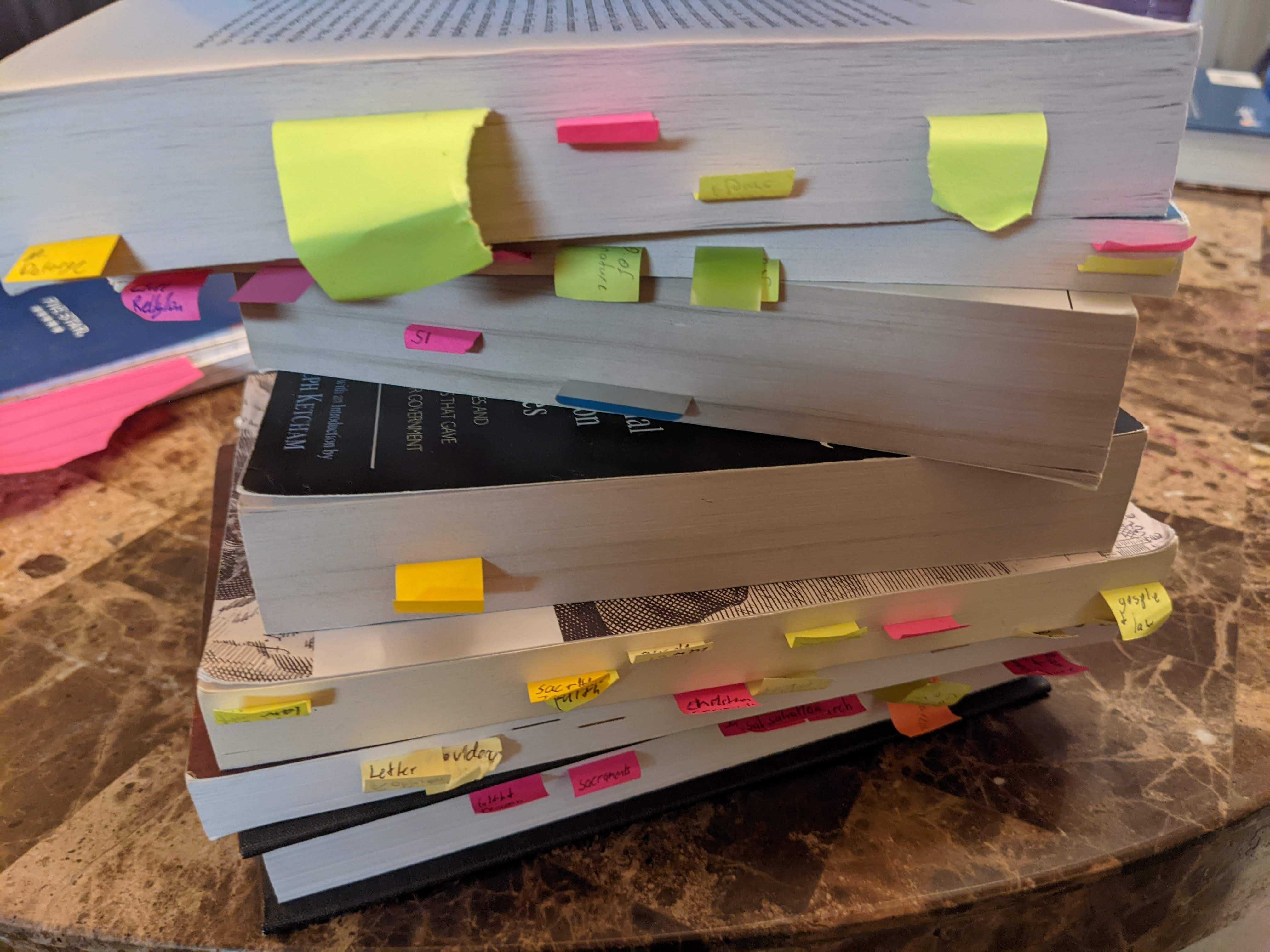
Active reading should involve marking up the book. For example, when reading about Tiresias in Sophocles' Theban plays, the memory of that character from the previous year's reading of the Odyssey might inspire a short note like "Advised Odysseus in the underworld." When they reencounter Tiresias in Dante's 8th circle of Hell, a margin note reminding them of the part he played in the previous books is in order.
In our copy of Virgil's Eclogues, I see a penciled-in summary sentence at the heading of each Eclogue. This will make it easier to locate a particular story while writing an essay. Also, in the margins of Eclogue 4 is written the reference Isaiah 9:6-7. If there are any questions about the "Messianic Eclogue," they can quickly locate it and the connection to Isaiah.
A book that your child has marked up as they read is a great starting point for reviewing the sample tests. As they start to recognize themes and important questions, I encourage students to add sticky notes to sections they want to be able to find quickly and underline passages that they think would be helpful to reference in an essay. A keyword, a note reminding them of the page number of a related topic, the name of a character in another book that illustrated a related concept, or a Bible reference to a related verse are all great ways to ensure they can quickly find what they need. For example, skimming through my daughter's copy of Aristotle's Ethics after we studied, I see she underlined a passage about how one obtains virtue in Book II. In the margin, she wrote Proverbs 22:6. If she happened to need to quote Aristotle's opinion on virtue, she could easily find it, and the note would trigger her memory of Solomon's admonition to "train up a child in the way he should go." At the beginning of Book VIII, she wrote a short outline of the three types of friendships that Aristotle covered in that chapter and noted the page number where each type is discussed.
Summary
For Self-Paced courses that don’t require writing essays, redoing all of the quizzes until they can make 100% on them is an effective way to ensure students are prepared to do well on the self-paced multiple-choice tests. For any versions of the course that require essays, interacting with the texts in ways that will make it easy to find and cite information later (sticky notes, marking up the pages) will be beneficial. The practice tests are extremely useful to gauge how quickly your student can find sections of the book that they might need to reference for writing on various themes that come up on the test.






